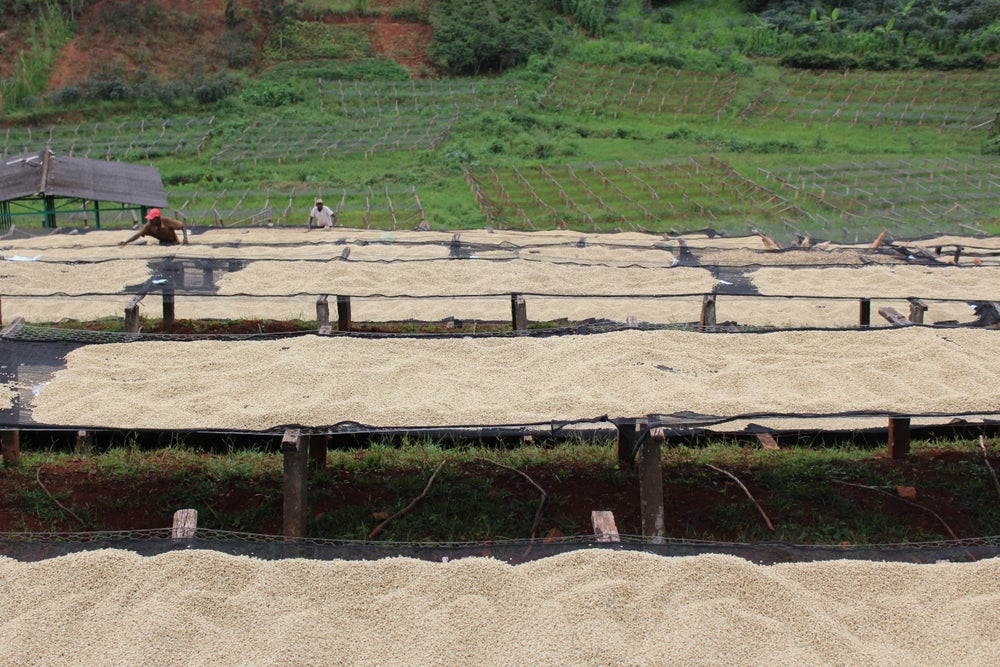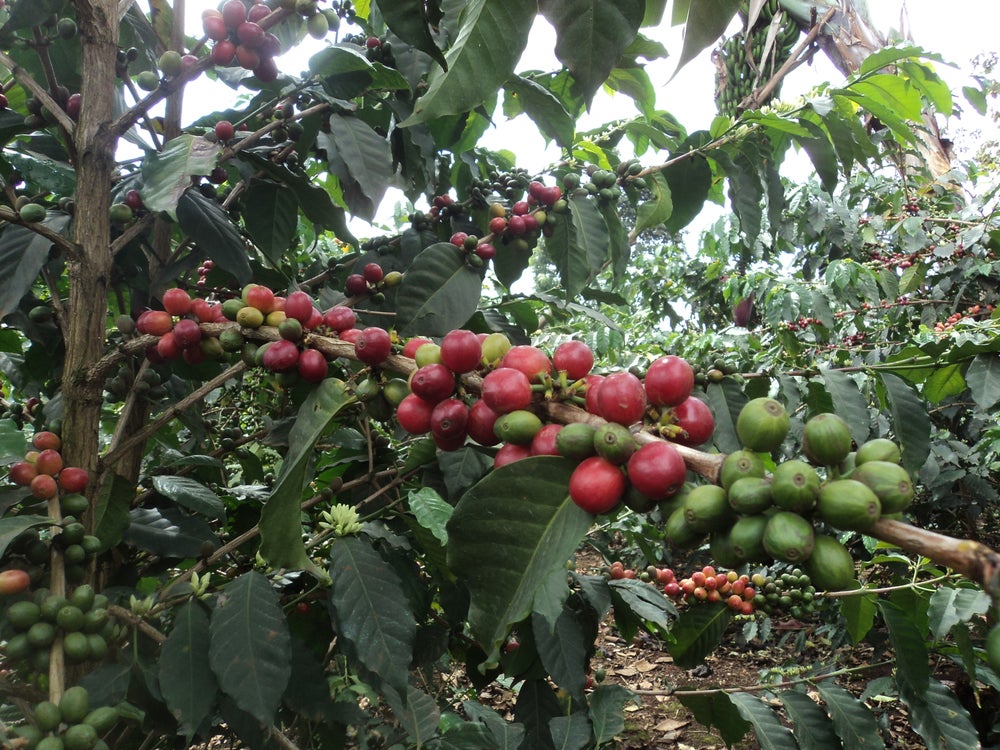About This Coffee
Kagurumai Factory is run by Kagurumai Farmers Cooperative Society (FCS). The FCS’s 635 members deliver cherry to the station. Members of Kagurumai FCS cultivate coffee at 1,500 to 1,630 meters above sea level and Kagurumai Factory takes every action to preserve the exceptional quality of the cherry delivered by their members.
Cultivation
Farmers delivering to Kagurumai cultivate primarily SL28, SL34, Batian and Ruiru 11 in small coffee gardens that are, on average, smaller than 1 hectare. ‘SL’ varieties are cultivars originally released by Scott Agricultural Laboratories (SAL) in the 1930s and 1940s. They soon became the go-to trees for many growers in Kenya due to their deep root structure, which allows them to maximize scarce water resources and flourish even without irrigation. They are cultivated with a serious eye to sustainability and Good Agricultural Practices, with minimal environmental impact where possible.
Batian is a relatively new variety introduced by the Kenya Coffee Research Institute (CRI) in 2010. Batian is named after the highest peak on Mt. Kenya and is resistant to both CBD and CLR. The variety has the added benefit of early maturity – cropping after only two years. Similar to Batian, Ruiru 11 is a new variety known for its disease resistance and high yields. It also starts yielding fruit after just 2 years.
Harvest & Post-Harvest
Smallholders selectively handpick only ripe cherry and deliver it to Kagurumai Factory. At intake, the Cherry Clerk oversees meticulous visual sorting and floating, accepting only dense, ripe cherry.
After intake, cherry is pulped and fermented for approximately 16 to 24 hours. Following fermentation, coffee is washed clean water and soaked for 12 hours. Then, parchment is laid to dry on raised beds. Workers rake parchment frequently to ensure even drying. They cover drying parchment during the hottest time of day, to maintain slow, even drying and at night, to shelter parchment from moisture. It takes approximately 14 to 18 days for parchment to dry.
AA Grade
Kenyan coffees are classified by size. AA beans are the largest size. AA grade coffees are those that are 17/18 screen size, meaning that they are larger than 7.2 millimeters.
About Murang’a
Murang’a lies just south of Nyeri and backs onto the temperate slopes of the Aberdare Mountain range on its western borders. Fertile red volcanic soil provides plenty of nutrients for growing trees while warm daytime and cooler nighttime temperatures create the best environment for beans to develop slowly and amass as much sugar as possible.
Farms in the county tend to be small, and farmers cultivate coffee on small plots alongside other food crops.
Coffee in Kenya
Though coffee growing had a relatively late start in Kenya, the industry has gained and maintained a impressive reputation. Since the start of production, Kenyan coffee has been recognized for its high-quality, meticulous preparation and exquisite flavors. Our in-country sister company, Sucafina Kenya, works with farmers across the country to ensure these exceptional coffees gain the accolades they deserve.
Today, more than 600,000 smallholders farming fewer than 5 acres compose 99% of the coffee farming population of Kenya. Their farms cover more than 75% of total coffee growing land and produce nearly 70% of the country’s coffee. These farmers are organized into hundreds of Farmer Cooperative Societies (FCS), all of which operate at least one factory. The remainder of annual production is grown and processed by small, medium and large land estates. Most of the larger estates have their own washing stations.
Most Kenyan coffees are fully washed and dried on raised beds. The country still upholds its reputation for high quality and attention to detail at its many washing stations. The best factories employ stringent sorting practices at cherry intake, and many of them have had the same management staff in place for years.

